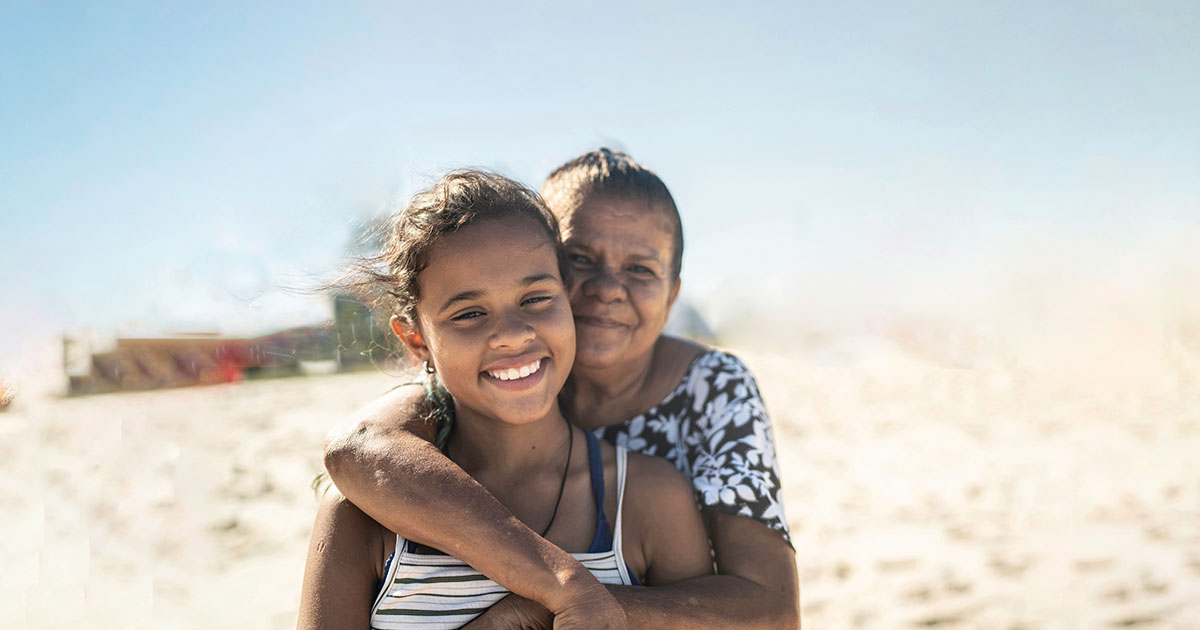COVID-19 and the mental health crisis: R U (really) OK?
- Details
The year of 2020 has been a tumultuous and challenging year for everyone.
So many of us have faced a decline in our mental health spurred on by the myriad ramifications of COVID-19. These stressors have included unemployment, financial stress, isolation from family, friends and colleagues, ill health, escalating domestic and family violence, homelessness, home schooling and remote working challenges.
Loneliness and social isolation are causing many people significant emotional pain and can have a negative impact on our health and wellbeing. On top of this, with increasing levels of unemployment and as we dip into recession, the scarring effect that can occur when anyone is out of work for a long period of time can cause significant mental health concerns.
If we have learned anything from this pandemic, there are many things about 2020 that we have had very little control over.
That said, as we adapt to this ever-evolving health situation, we do have opportunities to make a difference to the mental health of our fellow Australians. We can advocate for more investment to bolster Australia’s mental health services which are under growing pressure due to COVID-19. Closer to home, we can make it our personal priority to stop, listen and have meaningful mental health conversations with each other.
What better time to do both than in September. Not only is it the lead up to our Federal Budget in October – an opportune period for advocacy – but this month is also important time for mental health and suicide awareness, with R U OK? Day and World Suicide Prevention Day both held on 10th September this year.
Since the pandemic arrived in Australia, our Mission Australia staff have seen a great increase in numbers of people seeking support from our mental health services, as have many other mental health service providers. There’s no doubt that mental health concerns are climbing, with this issue making headlines almost every day.
Addressing and preventing mental ill-health is a challenge that must be addressed and prioritised by everyone, including our governments.
Encouragingly, our Government saw this need several months ago, providing initial investment in initiatives such as the Government’s Head to Health digital portal and some mental health services. The COVID-19 income support supplement was also introduced, helping to reduce the knock-on effects of economic downturn and unemployment on people’s wellbeing and mental health.
Still, more must be done to help the many thousands of people who are struggling with mental ill-health.
When the Federal Budget for 2020-21 is handed down in October, we’d like to see urgent investment in further resources to address mental health issues arising and escalating throughout COVID-19, as we have highlighted in our supplementary pre-Budget submission.
We must also prioritise the mental health of our young people, who can often be overlooked at this precarious time. So many young Australians are struggling in silence during this mental health pandemic. They are disproportionately affected by unemployment while also being impacted by mental health concerns related to COVID-19. Given both of these are known drivers of homelessness as seen in our recent youth homelessness report, we are concerned the decline in mental health of young people coupled with other stressors will cause an exponential increase in youth homelessness.
This is why we are also calling for further funding for dedicated and age-appropriate mental health and community services for young people, in close consultation and collaboration with them about their needs.
As we have seen play out in many ways this year, everyone reacts differently in stressful situations. It is normal to feel stressed, anxious, sad or overwhelmed about all the unknowns that this pandemic presents.
It feels like R U OK? day has never been more important. It’s a timely reminder for us to check-in and support the people we know who may be grappling with 2020’s ups and downs. We should use this time to make it our personal priority and mission to ensure we’re equipped with the “know-how” and mental health first aid so we can listen from the heart, help improve the wellbeing and mental health of others and connect them with the right mental health supports, when they need them. I’d like you to take this time to reflect. Do you know if your family member or neighbour is okay? What about the colleague you used to see in the kitchen every morning, or in the lift or on the bus? Please check in with them today. A meaningful chat while maintaining a safe physical distance – whether that be a phone call or another form of communication – can make a difference in someone’s life, or even save one.
At Mission Australia, our community services staff have been working to support the mental health and wellbeing of thousands of vulnerable Australians who are struggling at this time. Our staff have shown incredible resilience and unwavering compassion. They remain dedicated to ensuring that the people we serve receive the highest quality support and help needed at this challenging time.
Compassion is a core value behind everything we do at Mission Australia, including when it comes to ensuring our people are properly supported during the pandemic. I have seen an immense sense of camaraderie, sharing of knowledge and emotional support flowing between Mission Australia staff and volunteers – particularly across our State and Territory borders and towards our Victorian colleagues who continue to experience Stage 4 lockdowns.
I’m proud of our range of COVID-19 mental health supports and resources available to strengthen the wellbeing of our staff including Chaplains and our Employee Assistance Program (EAP). Mission Australia has also had specific extra COVID-19 leave in place since April, to reduce the spread of the virus, and so no one is under financial or emotional pressure to attend work if they have symptoms or are awaiting test results.
We can all make a difference to our nation’s mental health by standing up and advocating for the changes needed to improve our mental health ecosystem, and by taking time to help someone who is struggling with their mental health with regular, meaningful conversations about life’s challenges.
If you are experiencing a personal crisis or mental health concerns, you can contact Lifeline on 13 11 14, Beyond Blue’s Coronavirus Mental Wellbeing line 1800 512 348, Kids Helpline 1800 55 1800 or you may have access to an Employee Assistance Program provided by your employer.

James Toomey
CEO Mission Australia
@jbc_toomey
Related media releases
Read about what we’ve been working on, our stance on important social issues and how you make a difference to vulnerable Australians' lives.



